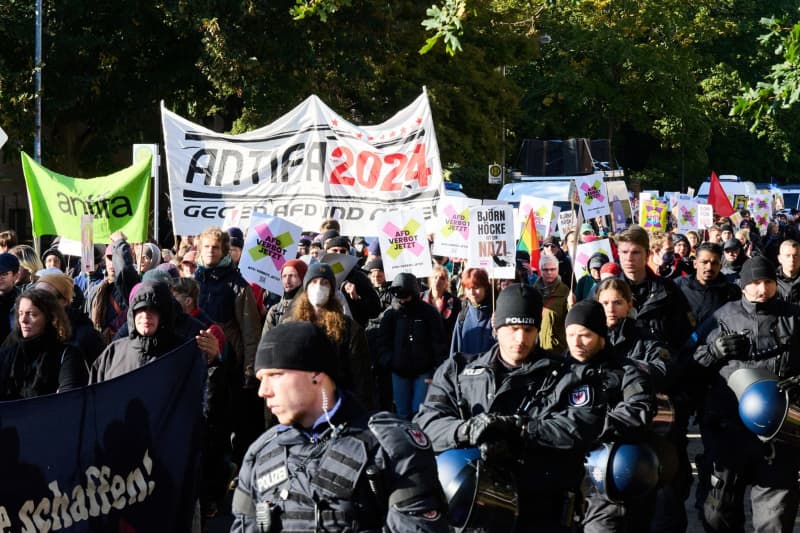In Jüterborg, a small town near Berlin, hundreds of protesters demonstrated against the far-right Alternative for Germany (AfD) ahead of its regional conference. The gathering involved an array of individuals united in their opposition to the party’s agenda, specifically its anti-immigration policies. As protesters made their way to the conference venue, they displayed banners and chanted messages advocating for diversity and against fascism, expressing a robust sentiment against right-wing extremism. Estimates of the number of attendees varied, with organizers claiming between 500 and 600 participants, while police withheld an official figure. In juxtaposition, the AfD had to relocate their members-only event from Berlin to Jüterborg, reflecting the intense local resistance to their ideology in the capital city.
The Berlin branch of the AfD utilized the Jüterborg venue, Wiesenhalle, to strategize their candidate list for the upcoming 2025 national elections. This meeting comes at a crucial time for the party as they position themselves for what could be their strongest showing in national elections to date. With recent successes in state elections, where they garnered around 30% of the vote, the AfD appears to be gaining traction among certain demographics in Germany, particularly in regions where sentiments resonate more with their ideologies compared to metropolitan areas like Berlin. The AfD’s return to its roots as a euroskeptic party has transformed over the years into a strong focus on immigration, appealing to constituents discontented with current immigration policies.
Beatrix von Storch, a notable member of the AfD and a previous leader of the party’s Berlin branch, is anticipated to be the lead candidate for the upcoming elections. Her established history within the party and previous electoral campaigns positioned her as a prominent figure among the party’s ranks. The need for strong leadership and a thorough candidate selection process underscores the AfD’s efforts to solidify its presence as a formidable force in the political landscape as elections approach.
The ongoing scrutiny of the AfD by the federal domestic intelligence agency highlights the party’s controversial stance and its potential classification as extremist by various state intelligence organizations. This attention is primarily due to concerns surrounding the party’s rising influence and the implications of its far-right views on German politics and society. The AfD’s alignment with nationalist rhetoric and anti-immigration policies has prompted significant fears regarding its impact on social cohesion in a diverse society, illustrating the ongoing ideological divide within the country.
The protest against the AfD’s conference in Jüterborg symbolizes broader public opposition and engagement against right-wing politics in Germany. Diverse organizations, including grassroots movements, unions, and leftist groups, rallied to collectively challenge the party’s views and promote civil discourse aimed at fostering inclusivity. Demonstrators’ chants and signs represent a commitment to defending democracy and fighting against perceived fascism and racism. This key moment reflects both the urgency and significance of civic activism in resisting extremist ideologies as they gain political ground.
Ultimately, the events in Jüterborg serve as a microcosm of the larger struggle within Germany over national identity, immigration, and the political landscape’s shifting nature. As the AfD prepares for significant electoral contests, the reactions from civil society and activists illustrate the crucial pushback against the rise of far-right movements. The unfolding scenario poses critical questions about the future trajectory of German politics, the effectiveness of protest movements, and the ongoing negotiations of identity and belonging in an increasingly polarized society.

